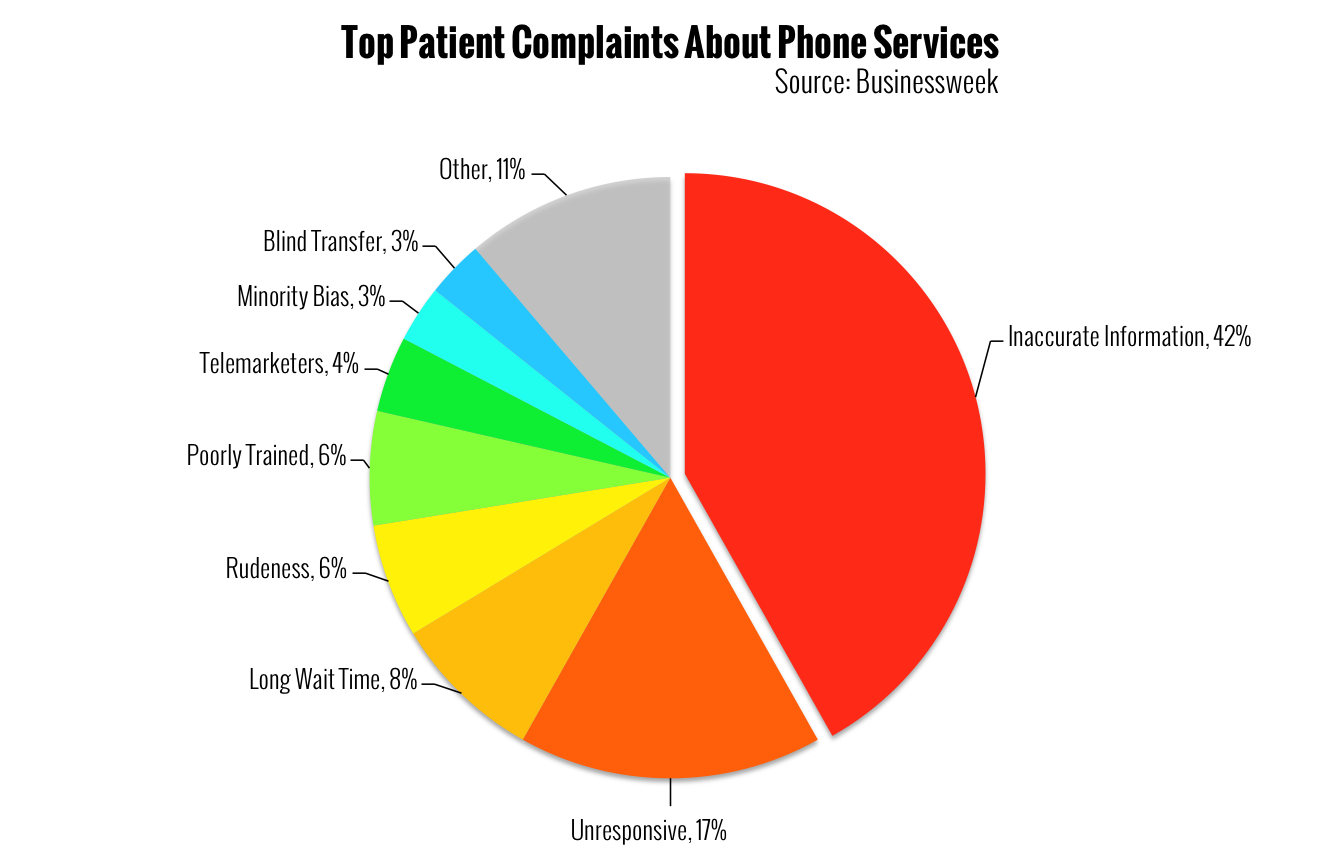
You’ve probably contemplated what happens when someone initially calls your practice and then never schedules an appointment. It can be just like a first date – you think it went well and when you never hear from them again, you’re left wondering, “Was it me? Was it something I did or said?”
We hate to break it to you, but according to survey data, chances are it may have been something said (or not said) that turned a prospective patient off. In fact, data shows 65% of people do not book a procedure at the first practice they call because of a poor customer experience. The key reasons being:
- Patient callers felt they were kept on hold for too long
- They had to repeat information to multiple representatives
- The response to patient messages or emails was too slow or unresponsive
- And by a longshot, the #1 complaint: The caller felt the representative provided inaccurate information, was not knowledgeable or could not solve their need or problem
We often forget the root of the patient call: a patient has a problem, they think your practice and the services you offer can solve that problem, and they want information on that solution as quickly as possible. In their mind, there are plenty of other “fish in the sea” or other practices that can meet their needs if your practice can’t.
So, how does your practice get the next date.. er, appointment? We break it down to the 3 fundamental things your practice needs in order to be effective on a call:
- A Customer Service Mindset
First and foremost, every single employee in your practice must understand that delivering exceptional customer service is their #1 priority. This means they are allowed and even encouraged to set aside all other tasks, such as paperwork and filing, to ensure patients are given the time and attention they need. Just like dating, having a customer service mindset on the phone means understanding the caller, listening to their needs, asking them key questions, and making them feel like they’ve met “the one.”
2. Training & Practice
Each staff member should be well equipped to answer the majority of questions asked by callers. They should not only know about the services you offer; but be able to offer specific details such as pricing, what to expect during a consult, and why your practice is better than other practices in delivering those services.
Just as important as knowing this information is practicing it, so staff members come across knowledgeable, friendly, and confident on the phones. Our free webinar series “How to Convert More Calls to Patients” offers key tips and best practices from our flagship program, First Contact, to help your staff master what our customer service team does every day, on every call, to ensure you never miss a lead. Click here to watch the webinar series.
3. Adequate Staffing
At the end of the day, you may have the best staff who all share a customer service mindset, and who have been well-trained on your practice, but they simply do not have enough time needed to effectively manage incoming calls. Many of our clients, who are top performing practices, have this issue. They ultimately need their staff to focus on the patient experience within the office, rather than overwhelming them with managing the phones.
That is the reason our First Contact program has been so successful. Our team serves as an extension of your staff not only to ensure you never miss a call, but to deliver the best possible customer experience to convert that call into a booked consult… a second date, if you will.
But don’t take our word for it. Hear what our clients are saying about how we’ve helped their practice.
As consumer demand for a better experience continues to grow, practices must ensure they make the best first impression.
Want to see how your practice performs on the phones? Request a free practice assessment and we’ll provide you with insights specific to your practice.
Click here to request a phone assessment

